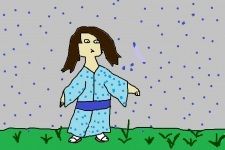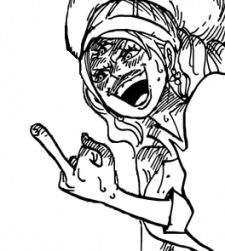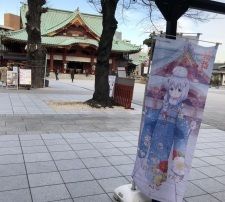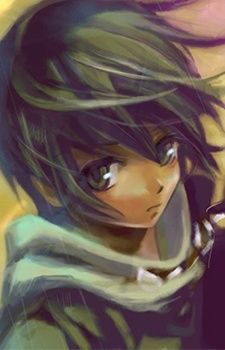*The endless display of wonder is as clear as the crystal sheen of that paradisiac lake borne by the sacred Alps* ~~ The warm pulse of morning at the mighty Sun's arrival The bounty of the earth, the playful winds, And aloft in a dance every happy thing swings. For scenery is therapy And all the symbols show in the Alps.The sound of their innocence, claimed for youth and freedom
A heartleap at the daily for ascetics,
Thereon magic is in tables, the fir trees, and the broomsticks,
For grace is within children
And kindness at the ready in the Alps.
The beauties of the meadows make friends with one and all
Every one is named, every thing's involved
And a lifetime bond is a shared resolve
For empathy is a sweet ol' prayer
And all the love is found in the Alps.
~~
!! SPOILER-FILLED REVIEW !!
~~
There is a kind of synchronicity of positive affect enshrined in an encounter with child-like wonder. Stunned before a world of intact innocence, the eye becomes focused: details spring up like a well-nurtured field of green infused with the sustenance of its contented design, and the luster creeping up upon the long-forgotten otherside rekindles the fizzled care for natural delight. *Heidi, Girl of the Alps*, in its offering of the majesty that is the Swiss Alps and the equal magnitude of the same quality found within a young girl's heart, arranged an audiovisual score so restful, so stirring, although sometimes so frustrating, still so capable of impelling an imagination portal to rise out of thin air. There we see a sea of clouds to lay a kinetic body down, or an image of a theater sung by the illustrious troupe of non-human vocalists and instrumentalists. Sometimes what stands solely within reverie is the looming figure of a great mountain patiently waiting for its children to come home into its restorative abode. The species of certain quadrupeds alongside winged creatures, wild or domesticated regardless, with the inclusion of the elementals and the natural course of the landmark's jewels, are identified with familiarity through a separate language shared by the well-meaning kind. And these prompts on the screen (or are mirrored back to the screen) most appropriately consolidate the identity and charm of *Heidi, **Girl of the Alps***.
Emboldened were those last few words of the title to pull out an encapsulation. *Heidi, Girl of the Alps* is indeed an anime about Heidi, a girl who lives in the Alps. Go figure! But more than that, as a girl *of the* Alps, Heidi as the central force carrying the brunt of the story's elements over her little shoulders brings with her, like a religious disciple with the most reverent faith in a higher entity, the gospel of the mountain's bounty. The title is as candid as the show appears to be. I adore the level of connectivity that effortlessly arises in these scenarios, and the enduring quality that comes from being simple and forward (points a finger at myself and laughs).
The commitment of Takahata Isao to portray the novel of Johanna Spyri as an anime adaptation that beholds the day-to-day on Mother Nature's bosom in the mountains with exhilarating adventure and an endless display of wonder is as clear as the crystal sheen of that paradisiac lake found at the upper limits of the ranges. Vivid landscapes come as lucid spells to enchant an unspeakable sense of longing especially to the urban man, courtesy of Ioka Masahiro's art direction. Urakami Yasuo's understanding of the sound of nature's existence comes like an angel descending from a cloud of stairs to simulate a cinematic life on the simple livelihood in the countryside amongst wildlife and domesticated creatures and wooden gadgets and village gossip and sweaty work and open galaxies of green, brown, and blue. The trifecta of perpetrators are also found depicting the dreamy yet grounded depiction of nature in *Anne of Green Gables*, truly the all-stars of child-like wonder and rural majesty. Watanabe Takeo's music compositions that incorporate the German style seal the package and complete the foundation of what makes *Heidi* a sensorially pleasant watch.
Although *Heidi* can be considered as *cottagecore*, the saccharine warmth the vision usually concerns itself with is instead replaced by a louder, more imposing embrace that comes from the presence of the Alps. There is also an underside, if you will, in the form of the industrial city of Frankfurt, an urban metropolis devoid of bright hues and towering trees in favor of commercial buildings and crammed lines of houses where *Heidi* experienced legitimate trauma in the Sesemann household. So despite the choir of loveliness that echoes throughout virtually this entire write-up, indeed a large portion of mountain life is consumed by life in a mansion with a governess who practices the art of extreme, borderline devilish discipline.
With filters removed and masks cast off, the middle section of *Heidi* boasts a superior degree of fury-inducing plot. I would have lesser issues with it if the reins on Fraulein Rottenmeier were tighter to reduce her freedom in the presence of the master of the house, his mother, and his only beloved daughter, but her influence knew no bounds for reasons I cannot understand as a mere commoner in the modern world and she continues to be prowling over with her close-minded philosophies which were never really fully addressed, apart from the skip in character journey with her believing in the Alps' magic in the end. At the very least, it makes for a powerful springboard once we go back to the mountains with Heidi, when Alm-Onji's despair is exorcised by the reunion of loving family, completely sold on the value of companionship, and the holy power of the Alps is given inarguable legitimacy.
With the way I've been talking, I consider the mountains as a character of their own. It is a peculiar feeling to have. However, it is a testament to the energy nature brings into our souls. *Heidi, Girl of the Alps* manages to incorporate an entity that is motionless and incapable of verbally speaking and transform it into what could be considered a most influential character with omnipresence. To draw a comparison, it is much like *Aria*'s Neo-Venezia. This makes me realize that I so like it when the setting of the story itself is given dominant importance and impact because it becomes treated with a unique kind of value that is different from living, breathing casts. The vigor that the Swiss Alps bestows upon its inhabitants is known to be unmatched, thus there the conclusive arc of Clara's road to recovery was suitably positioned as it was.
There was less of Heidi and more of Clara towards the end. Arguably not as interesting of a character, thus admittedly reducing my engagement with the anime, but the ultimatum of the message it materialized made it a definitively reasonable decision to make.
A threefold salvation occurred within the Alps. First, it was Onji, who cocooned himself as a misanthrope in the desolate Alps yet eventually grew to be more amicable to his community due to a certain orphaned girl. Second, it was Heidi, who essentially was breathed into life and found a place she could call home, and a true family to live with. The Alps were here lifeline during the dark ages of separation. Lastly, it was Clara, who with the help of the mountains, the children, the goats, and Onji, was relieved from the ailment of weak legs and in turn learned to stand and walk on her own after those many years on a wheelchair, with access to professional medical aid nonetheless. Indeed, touching--walking on grass can solve a plethora of our problems. Thank you, *Heidi*. But in all seriousness, every step towards salvation heightens the treasure of beauty found in the Alps. It is a grace to be looked at with wistful eyes and a longing soul, a deity to convert stalwarts for environmental preservation.
The core of resplendence unveiled in all its glory, *Heidi, Girl of the Alps* is a gem of its time. This is a classic produced with meticulous care such that it achieves to replicate sceneries that could make the mouth agape in awe and the heart leap in calming bliss. In terms of personal connection, it isn't too close to the special places within me. Regardless of that, Isao Takahata and team have translated a heartwarming story with its delightfulness intact in animated form.















